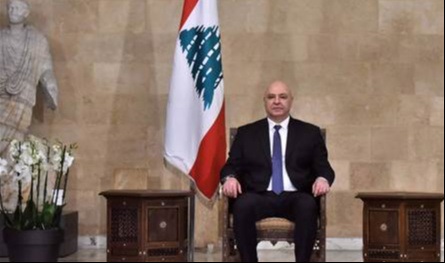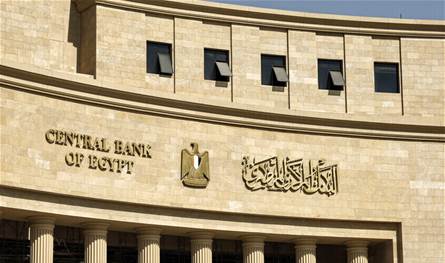The President of the Republic is obligated to reject any ministerial session that the Shiite component is absent from

Karim Haddad wrote in “Al -Akhbar”: The Lebanese constitution is not just a set of cold legal texts, but rather a living framework that carries within it a spirit that gives it meaning and effectiveness. This spirit is manifested in the principle of the charter, which constitutes the guarantee of coexistence between the Lebanese sects. The amended constitution after the Taif Agreement clearly affirmed this principle in its introduction when it stipulated that “there is no legitimacy for any authority that contradicts the Charter of Certainty Certainty.” Hence, any practice of the executive or legislative authority ignores the presence of the basic components in the decision -making becomes legitimate, even if it is based on the legal or numerical form.
First: The role of the President of the Republic as a “ruling” and a welding of the charter
Article 49 of the constitution determined the position of the President of the Republic, and stipulated that he is “the head of state and the symbol of the unity of the country, ensuring respect for the constitution and preserving the independence, unity of Lebanon and the integrity of its lands.” He also gave him the authority to head the cabinet when he wanted, which makes him present at the heart of the executive process.
Hence, it becomes clear that the President of the Republic is not just a protocol position, but rather the constitutional rule that guarantees that the actions of the cabinet remain in accordance with the spirit and texts of the constitution. If the Council of Ministers is held in the absence of a basic component like the Shiite sect, then the president has a constitutional duty to refuse to recognize the legitimacy of the session, because its continuation contradicts the coexistence charter stipulated in the introduction to the constitution.
Second: Participation in decision -making, not formal representation
The constitution stipulated in Article 95 on the principle of equality in the functions of the first category between Muslims and Christians, and Article 65 stipulates that the basic decisions in the Council of Ministers need a majority of two -thirds. However, these texts are not limited to the numerical or formal side, but are aimed at devoting actual participation in making fateful decisions.
The nominal representation, that is, the mere presence of ministers from a specific sect in the government without having a real impact on the decision, does not achieve the spirit of the constitution. Fine participation means that every sect has an actual partner in decision -making, not just “seats” on the table.
Third: The Charter as a condition for constitutional legitimacy
Legitimacy in Lebanon is not just a result of elections or decrees. It is organically linked to the extent of respect for the principle of coexistence. Therefore, when a major sect is absent from a cabinet session – voluntarily or forcibly – the decisions issued by this session lose their legitimacy.
This is what is dedicated to the Lebanese experience, especially in previous crises (such as the withdrawal of Shiite ministers in 2006), where facts showed that any decision taken in the absence of a basic component is considered a lack of legitimacy. This is not only due to the political norms, but it finds its basis in the constitutional text itself, as there is no legitimacy for any authority that contradicts the coexistence charter.
Fourth: The duty of the President of the Republic in the absence of the basic components
The President of the Republic, as judgment and guarantor of the constitution, does not have the welfare of neutrality in such cases. Rather, it falls on a clear duty:
1- Rejection of the session if it is absent from it, a basic component, in order to preserve the constitutional legitimacy.
2- Lifting the session as soon as it was found that the charter participation is not achieved.
3- Calling on political forces to consult to re-form a balanced participation that guarantees respect for the constitution.
This is not a political choice but rather a constitutional duty. The president, who accepts the convening of a non -charter session, has abandoned his judgment and turned into a party, which threatens the national balance.
Fifth: The size of the Shiite community and its effect on the charter
It cannot be denied that the Shiite community, in terms of its number and social and political extension, represents one of the largest Lebanese sects. Consequently, its absence from the cabinet or the marginalization of its role in the executive decision means hitting the national balance in the core.
Shiite participation is not a privilege, but rather a translation of a social, demographic – constitutional reality. The charter is based on mutual recognition between sects, not to impose the dominance of the numerical or political majority.
Sixth: Between texts and norms – which of them is transcendent?
Someone may say that the constitution does not explicitly stipulate that all sects must be attended in every session. But this statement ignores that the texts alone are not enough. Constitutional and political norms in Lebanon have proven that crucial decisions only pass through the consensus of the basic sects.
And if the constitutional text has made the charter a condition for legitimacy, then the norms came to explain it and activate it. Thus, the absence of Shi’a ministers is not just a numerical deficiency, but a violation of the spirit on which the constitution is based.
Seventh: The constitutional and political risks of the absence of the charter
1- Loss of legitimacy: decisions taken in a non-conventional session that become vulnerable to popular, political and perhaps judicial appeal.
2- Disable institutions: the absent sect will intersect the implementation of decisions, which leads to complete paralysis.
3- The disintegration of the social contract: as it feels an essential component that it is a maximum managing state affairs.
4- The exacerbation of the sectarian division: which threatens the civil peace that the constitution is protected.
Eighth: Comparatives with consensual systems
The compatible systems similar to Lebanon – such as Switzerland and Belgium – have proven that the compatibility is an indispensable condition for the continuation of the system. In Belgium, governments disrupted more than 500 days due to the lack of compatibility between ingredients. In Switzerland, major decisions are not made without everyone’s participation.
In Lebanon, the fragility of the sectarian situation makes it more needed than others to this consensus. Consequently, the convening of the Council of Ministers becomes in the absence of a basic component of a constitutional -political violation.
Ninth: the required position
Based on the foregoing, any session of the Council of Ministers is absent from the Shiite community that loses its constitutional legitimacy and the charter, even if it meets its numerical quorum. The President of the Republic here is that:
• Refuses to recognize the legitimacy of its convening.
• It immediately raises it to preserve coexistence.
• It confirms that the constitution is not rigid texts but rather a living national contract that requires actual participation from all components.
Conclusion: The Charter as a condition of existence, not as an excuse to disrupt
The discussion on the charter is not a political detail, but rather a discussion about Lebanon’s identity and regime. Either Lebanon is a consensual democracy based on partnership, or it becomes merely a numerical democracy led by a circumstantial majority, which means a threat to its existence itself.
Hence, the President of the Republic, as the protector of the constitution, is obligated to reject any ministerial session held in the absence of a basic component, because it does not express coexistence or the spirit of the constitution. Thus, the Charter is not a restriction on democracy, but rather the condition of its existence and ensuring its continuation.
The post The President of the Republic is obligated to reject any ministerial session that the Shiite component is absent from appeared first on 961 tobay Lebanon today.
















